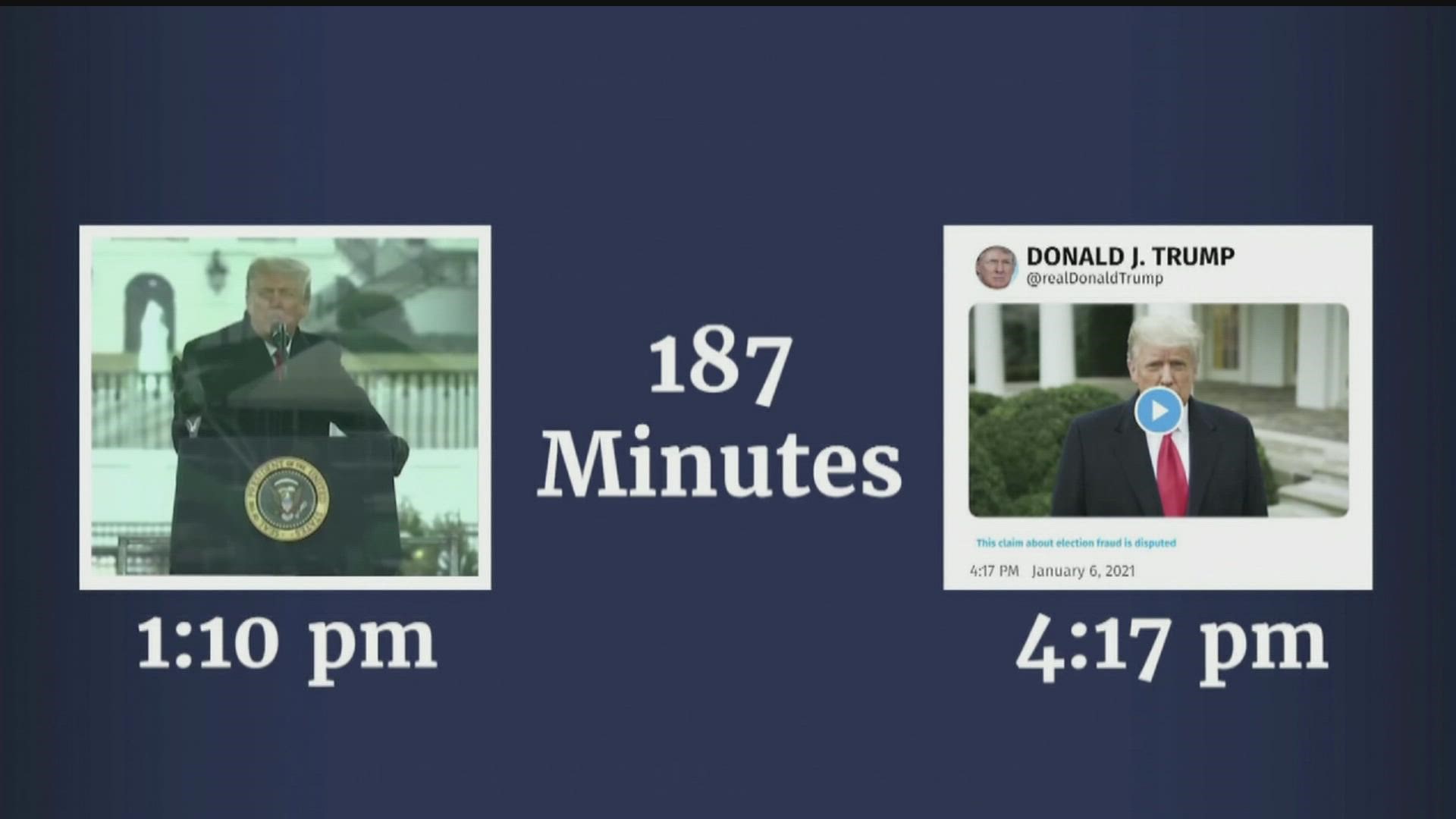WASHINGTON, D.C., USA — The Jan. 6 committee returned Thursday evening to a primetime slot on national television, making the case to the American public that former President Donald Trump failed to stop a mob from attacking the U.S. Capitol so that the election certification process could be disrupted.
The committee largely focused on a roughly three-hour period on the afternoon of Jan. 6, 2021, spanning the end of Trump's speech near the White House to his recorded message later that afternoon telling rioters to leave the capitol.
While Thursday's session wrapped up the summer hearings, Rep. Liz Cheney of Wyoming said that more hearings are planned for September.
Ahead of the hearing, KARE 11 spoke with Dr. Howard Lavine, an expert in political psychology from the University of Minnesota. In our conversation, we discussed the impact of the hearings on the public, and how they may or may not impact federal elections in 2022 and 2024.
Here is part of that conversation.
Q: What impact do you think the hearings have had so far on the American public?
LAVINE: That's a very good question, and there are really a couple of different answers to that. One of them is, not a lot of it matters. That is based on the adage that people that are interested and engaged in politics, and may be paying attention to the hearings, are not themselves persuadable. So they come away reinforced in their own belief that this was either an illegal act, or a witch hunt, and those people that might be persuadable are precisely those people who did not tune into the hearings.
But it's been all over the news, and so on the margins among voters that may be less likely to vote in midterms, they have certainly been exposed to a raft of evidence over the period of seven, and tonight, eight hearings. What is different about this hearing is that it's composed of people, all of whom are in some way or another, on the same side. Usually, you have Democratic and Republican opponents who are making very different points, opposing points. And that's not the case here. There's a lot of volume with respect to the 'Trump is guilty' message, with no one on the panel speaking on behalf of Trump.
Q: What impact, if any, do the hearings have on the midterms?
LAVINE: I don't think they're going to have a lot of impact, quite frankly. I think there are a lot of other issues that are important. We've seen Biden's approval rating slip, into some pretty dangerous territory in the low thirties as a result of the pandemic, Delta then Omicron. Inflation, certainly, is on the top of voters' minds. It's hard to think that those people that will turn out will be ones whose minds were strongly changed by the hearings. Although they're not over yet. They may continue to hold public hearings in the fall.
Q: Could you explain for our viewers the role of the committee? What does it ultimately look to do?
LAVINE: This is a fact-finding committee. Just like all investigative committees are in Congress, but again they're typically selected to have people representing different views. This isn't the case in this particular hearing. The purpose really is to report to Congress and they can make a recommendation and make a report available to the Justice Department that has sole authority to charge anyone, including the former president, with crimes.
Q: In terms of the polarization of the country, what do you take away from the hearings and how people are viewing them? It's two Americas, so to speak, viewing facts in a different way right now.
LAVINE: I think that really is the case, unfortunately. We know that misinformation, and on top of that, simply the desire to believe what one wishes to believe, these are powerful effects. People are often receiving information second or third-hand, perhaps from partisan sources that are slanting it in the direction of their own particular way. There are people, however, who I suspect are on the fence, they want to know the truth, they figure that they don't know the whole truth -- that it's hard to believe a sitting president would do what he's being accused of. On the margins, that may influence the midterms, how the 2024 presidential election shapes up. Right now, it's not looking great for Donald Trump. He's behind in these trial-heat polls with President Biden and he's also behind Ron DeSantis in New Hampshire. So, I wouldn't say this is doing much good for Donald Trump, and it may fatally damaging.
Q: What's next? How do we dig out of this hole in America?
LAVINE: Right now, I think we are at the point where we're at a pretty high level of polarization, perhaps one we haven't seen since just prior to the Civil War. I think the likely way out of it, is that a sufficient number of voters who vote, citizens who vote, decide they've had enough of it. There's a group of Senators now putting together electoral reform, to deal with some of the ambiguities in the electoral format that's 135 years old, and this is on both sides of the fence. It may be, at some point, more voters than not will be interested in good governance rather than 'my team winning.' Which is sort of where we are now.

